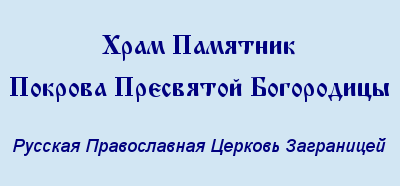Dear Brothers and Sisters,
Congratulations with the feast of the Ressurrection of the Lord and with the After-feast of our Lord’s Ascension!
At the end of Great Lent, we marked an important anniversary for the Russian Church: one hundred years from the day of the blessed repose of the Holy Hierarch Tikhon. Today all Orthodox, and not only they but also all Christians, mark yet another significant date, the 1,700th anniversary of the First Ecumenical Council!
We have discussed the First Ecumenical Council many times, have spoken about the Arian heresy, have shown why it is erroneous, and have explained how the Holy Fathers brought about a clear and precise answer to this false teaching. Today, on this festive day, let’s not repeat all that we have discussed earlier, but instead take note of how the council of Nicaea remains relevant and important up to our own time a full 1,700 years later.
Of course, the most important legacy of the First Ecumenical Council is the Symbol of Faith and that definition found in it that Jesus Christ is ‘consubstantial’ or ‘of one essence’ with God the Father. This term, as well as all of the first part of the Symbol of Faith, were accepted and sanctioned by the fathers of the Nicene Council. At each Divine Liturgy we triumphantly sing this text together and in such a way mystically join ourselves to all other faithful members of the Holy Orthodox Church who also hold fast to this Symbol. This text is of such importance that it is recited not only at the Liturgy, but every day by every Orthodox Christian.
The second important resolution of the Council which is still very much current is the celebration of Easter. During the first three centuries of the Christian Church not all celebrated Pascha in the same way. The majority of the faithful did as we do now and marked Pascha always on a Sunday, but there were also Christians who celebrated the Feast of Feasts on the 14th day of the Jewish month of Nisan, regardless of the day of the week (i. e. not necessarily on a Sunday). The fathers of the First Council established that all should celebrate Easter together, on the same day, and that the day should be a Sunday. As you can see, our main and most cherished feastday, which is at the centre of our church life, has its place in the calendar thanks to the First Ecumenical Council.
Let’s also take note that the Holy Fathers of the Nicene Council introduced nothing novel, but always and in all things held fast to that which was passed down to them. They believed that they were defending the faith of the apostles; if they said anything new this was only a clarification or an explanation of that which the Church always believed to be true.
Today, on this significant anniversary, let’s remember the Holy Fathers of the First Ecumenical Council; let us remember their contributions to the life of the Church, which are still very much relevant. Let’s glorify them not only with our prayers of praise, but also with a firm devotion to the faith of the apostles, which they so beautifully and accurately defended from evil heresies.
priest Alexis







